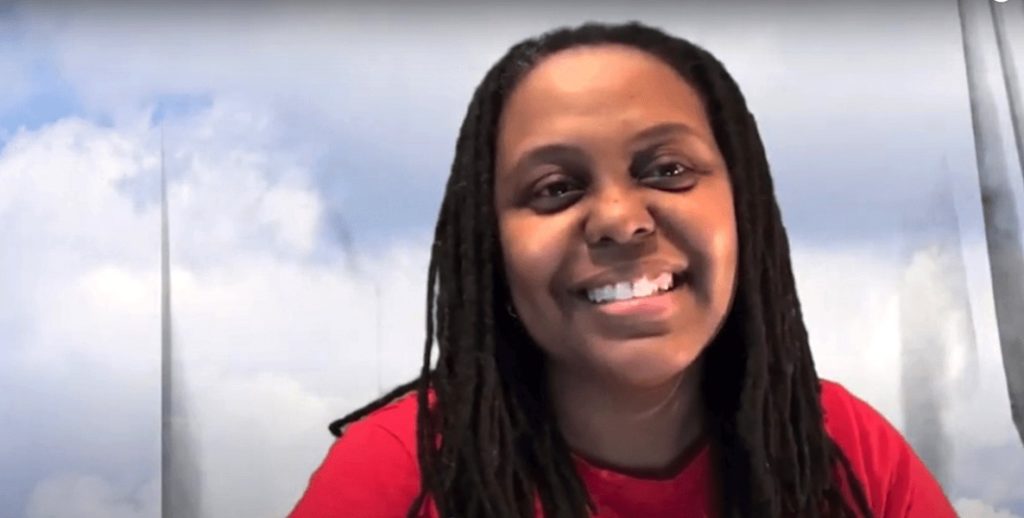Becoming anti-racist is a process, a daily practice.
“It’s this idea that, I am committed to understanding more of my relationship to race and racism, and wherever I am in the journey there are ways to deepen that and to uncover more,” says Dr. Nathalie Edmond, clinical psychologist and director of Mindful and Multicultural Counseling, a holistic therapy practice in Ewing, New Jersey.
Since early June, Edmond has been posting educational videos, articles, and other resources on her personal and practice websites to help people along their journeys. Videos like Understanding White Supremacy and Privilege; Untold Story About Racism and Internalized Racism Musings guide viewers with patience and calm clarity.
![]()
“I think of true mindfulness as curiosity [about] what’s happening in this moment,” says Edmond. It’s not all feel-good energy. “Sometimes you’re dealing with really difficult things that might bring up anger or shame or guilt or sadness.”
The trick is not turning away from or shunning the discomfort or pain. By practicing calm curiosity, you can stay with those feelings—and by staying with them, you will notice more, learn more, she says. It sounds hard, and it is, but it’s also key to moving us past the place we tend to stop when thinking and talking about race.
To dip your toe in gently, try Edmond’s guided RAIN (Recognize; Allow; Investigate; Nurture or Not Attach) meditation:
In her ongoing workshops, Edmond regularly draws from Mindful of Race: Transforming Racism from the Inside Out by Ruth King to help participants untangle the complexity of racial identity and the dynamics of oppression. She provides examples from her personal experiences and allows space for small group discussion to help participants process. And she gives homework.
One exercise: Name your race in three different conversations over the coming week.
“We live in a culture in which race is not really talked about and identified,” Edmond says. Especially whiteness. “The assumption is that, unless it’s other than white, don’t name it. To insert whiteness, make it visible, can be really uncomfortable.”
“This is a lifelong process,” says Dr. Edmond. “Even if you just model the way for people, over time that might invite them into the journey.”
But it’s all about practice. “The idea is to build a muscle to be able to have conversations [about race] in your everyday circles of influence,” she says.
Her current anti-racism work is an extension of the type of education she does in her own practice, which she opened with the mission of making mindfulness and therapy accessible to everyone. She is intentional about centering people who tend to be on the margins and provides training and required readings for her clinicians, so that they can apply a social justice lens to their therapy.
All of which means she’s a pro at guiding conversations with clarity, and holding space without judgement. “She communicates this feeling of warmth and safety,” says Lina Lewis-Arévalo, a clinician at Mindful and Multicultural Counseling who attended Edmond’s training in June. “You feel like this person can lead us in a really vulnerable exploration and isn’t going to make us feel ashamed.”
And starting on September 16th, she’ll hold a “Mindful of Race 2.0” series (her intro workshop is a prerequisite) to give folks the opportunity to continue and deepen the conversation.
“This is a lifelong process,” she says. “Even if you just model the way for people, over time that might invite them into the journey.”
Join Dr. Edmond August 8, 1-4pm; cost is sliding scale, $50-100. Register here.


